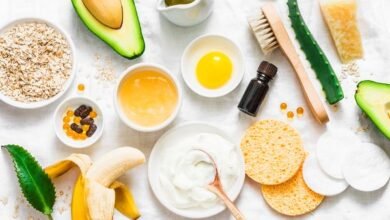Is winter the best time for a facelift? See myths and facts

Is winter the best time for a facelift? See myths and facts
Winter is here, and soon many people are thinking about getting their long-awaited plastic surgery. The season is favorable for surgical intervention, but there are myths and facts about the idea of having plastic surgery or cosmetic treatment, during the months of June to August.
Facts that encourage plastic surgery in the winter
Surgical procedures inevitably leave scars and swelling at the modified site. And no one can deny it: the heat, common on summer days, hampers more than it helps in recovery after surgery. This is because plastic surgery does not combine with sun exposure during the recovery period or in the subsequent months. In addition, heat is detrimental to the development of the postoperative period, as it increases swelling, especially if the patient is prone to fluid retention.
In winter, swelling decreases more easily because the cold period leads to peripheral vasoconstriction, which is the constriction of blood vessels.
Winter continues to be an aid to the use of an elastic band or a surgical bra in the postoperative period for liposuction or tummy tucks and mammoplasty, respectively. It is more convenient to use these therapeutic products during a mild climate and low temperatures. In addition, the fact that the body produces less sweat is welcome, since the product is kept clean while using it on the skin, whether around the abdomen or breast area.
With this said, it is a fact that recovery during the cold season tends to be better than in the summer. But taking good care of the scar and following all medical recommendations are the attitudes that remain essential for better healing and to avoid spots immediately.
Myths about plastic surgery in winter
July is the month of school holidays, and staying home with the kids requires a bit more organization to enjoy the best post-surgery period, when complete rest is essential. Therefore, winter plastic surgery is not the best method for everyone. What will determine the best time is what your life will be like during your recovery time.
In winter there are no problems with perspiration, but the period also calls for special attention to the skin, as low temperature and low air humidity affect the skin, causing dryness. Hydration of the skin after the procedure is essential, in keeping with a healthy and balanced diet.
Another myth is the saying that the result of plastic surgery in the winter is better. And there are no plastic surgery techniques that should be performed only in the winter, and the results are no longer satisfactory. What will determine the best outcome is the medical ability to apply the most appropriate surgical technique, accompanied by a satisfactory postoperative period, well directed and rigorous follow-up. The patient must be in good health, verified in the pre-operative examinations, and available for the operation and to take care of himself afterwards. And all this context is not linked to summer or winter.
It should be noted that it can be difficult to find time in clinics during the winter, as the schedule of a plastic surgeon is usually more crowded at this time of year. However, you should not charge more for the surgery depending on the season.



